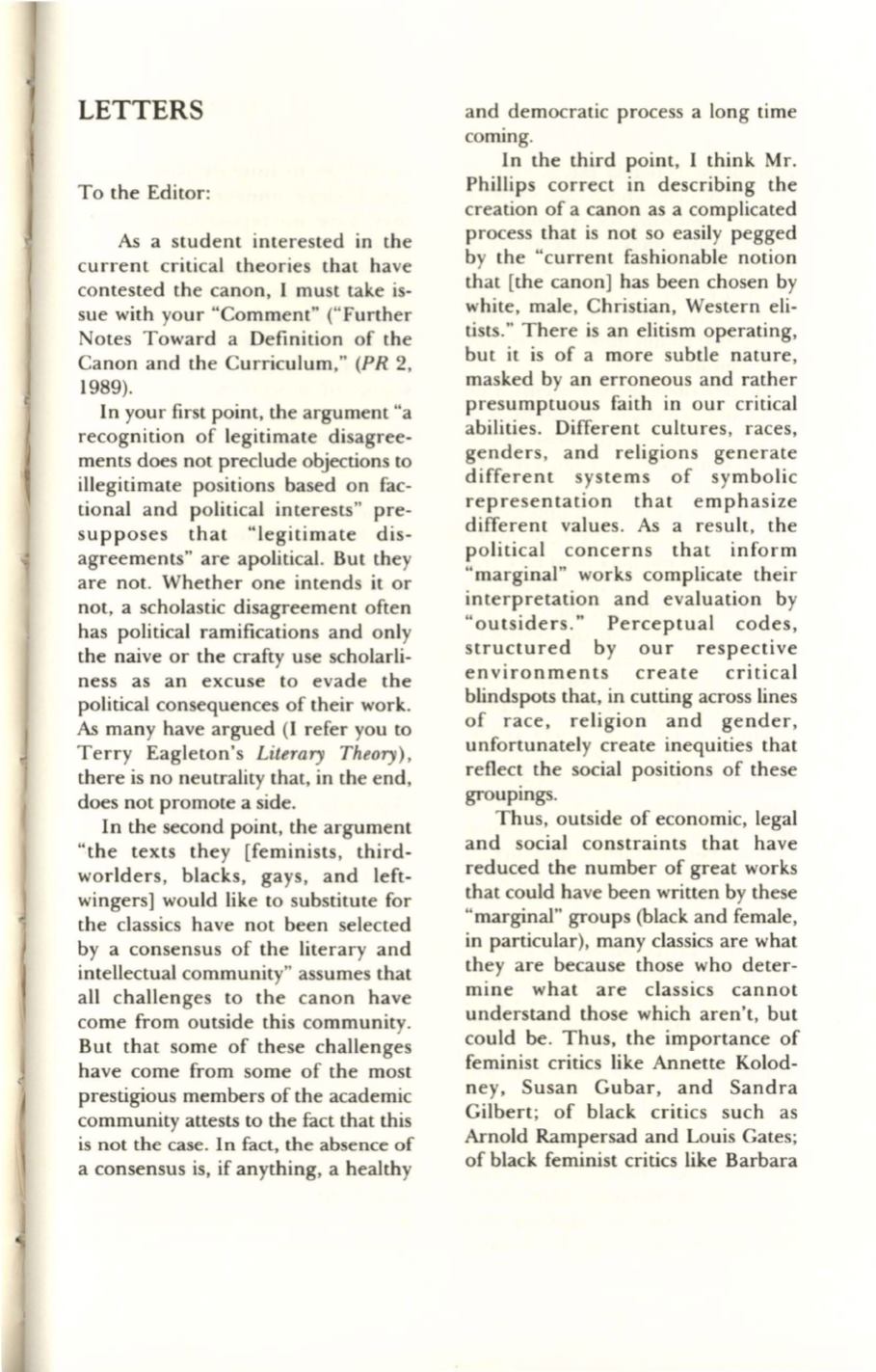
LETTERS
To the Editor:
As a student interested in the
current critical theories that have
contested the canon, I must take is–
sue with your "Comment" ("Further
Notes Toward a Definition of the
Canon and the Curriculum,"
(PR 2,
1989).
In your first point, the argument "a
recognition of legitimate disagree–
ments does not preclude objections to
illegitimate positions based on fac–
tional and political interests" pre–
supposes that "legitimate dis–
agreements" are apolitical. But they
are not. Whether one intends it or
not, a scholastic disagreement often
has political ramifications and only
the naive or the crafty use scholarli–
ness as an excuse to evade the
political consequences of their work.
As
many have argued (I refer you to
Terry Eagleton'S
Literary Theory ),
there is no neutrality that, in the end,
does not promote a side.
In the second point, the argument
"the texts they [feminists, third–
worlders , blacks, gays, and left–
wingers] would like to substitute for
the classics have not been selected
by a consensus of the literary and
intellectual community" assumes that
all challenges to the canon have
come from outside this community.
But that some of these challenges
have come from some of the most
prestigious members of the academic
community attests to the fact that this
is not the case. In fact, the absence of
a consensus is, if anything, a healthy
and democratic process a long time
coming.
In the third point, I think Mr.
Phillips correct in describing the
creation of a canon as a complicated
process that is not so easily pegged
by the "current fashionable notion
that [the canon] has been chosen by
white, male , Christian, Western eli–
tists." There is an elitism operating,
but it is of a more subtle nature
masked by an erroneous and rathe:
presumptuous faith in our critical
abilities. Different cultures, races,
genders, and religions generate
different systems of symbolic
representation that emphasize
different values. As a result, the
political concerns that inform
"marginal" works complicate their
interpretation and evaluation by
"outsiders." Perceptual codes,
structured by our respective
environments create critical
blindspots that, in cutting across lines
of race, religion and gender,
unfortunately create inequities that
reflect the social positions of these
groupings.
Thus, outside of economic, legal
and social constraints that have
reduced the number of great works
that could have been written by these
"marginal" groups (black and female,
in particular), many classics are what
they are because those who deter–
mine what are classics cannot
understand those which aren't, but
could be. Thus, the importance of
feminist critics like Annette Kolod–
ney, Susan Gubar, and Sandra
Gilbert; of black critics such as
Arnold Rampersad and Louis Gates;
of black feminist critics like Barbara


